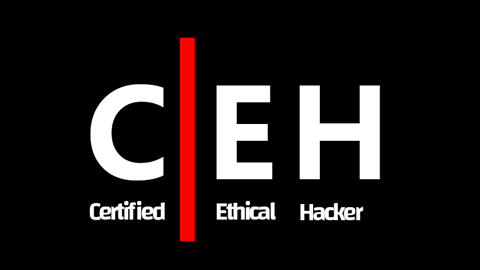This course will immerse you into a “Hacker Mindset” in order to teach you how to think like a hacker and better defend against future attacks. It puts you in the driver’s seat with a hands-on training environment employing a systematic ethical hacking process. You are constantly exposed to creative techniques of achieving optimal information security posture in the target organization; by hacking it! You will learn how to scan, test, hack and secure target systems. The course covers the Five Phases of Ethical Hacking, diving into Reconnaissance, Gaining Access, Enumeration, Maintaining Access, and covering your tracks. The tools and techniques in each of these five phases are provided in detail in an encyclopedic approach and absolutely no other program offers you the breadth of learning resources, labs, tools and techniques than the C|EH v10 program.
5 Days
- Basic computer skills (not just MS Word but using the command line, editing the registry, and setting up a network)
- Networking skills (for example, understanding routers and switches, internet protocols, and advanced TCP/IP)
- Linux skills (these are non-negotiable).
DON’T HAVE THE ABOVE REQUIREMENTS? DON’T WORRY, WE GOT YOU COVERED, WE RECOMMEND.
- We recommend you take Diploma in Information Security &Ethical Hacking.
- Here you will be taught right from the very basics of Networking and Linux administration. Then later introduced to Cyber security and finally the ethical hacking.
- CEH is an advanced training compared to Diploma in Information Security &Ethical Hacking.
- Once you through with the Diploma, you can now finally take the certified ethical Hacking with easy.
- Information Security Analyst/Administrator
- Information Systems Security Engineer/Manager
- Information Security Professionals/Officers
- Information Security/IT Auditors
- Risk/Threat/Vulnerability Analyst
- System Administrators
- Network Administrators and Engineers
What you will learn:
- Key issues plaguing the information security world, incident management process, and penetration testing.
- Various types of Footprinting, Footprinting tools, and countermeasures.
- Network scanning techniques and scanning countermeasures.
- Enumeration techniques and enumeration countermeasures.
- System hacking methodology, steganography, steganalysis attacks, and covering tracks.
- Different types of Trojans, Trojan analysis, and Trojan countermeasures.
- Working of viruses, virus analysis, computer worms, malware analysis procedure, and countermeasures.
- Packet sniffing techniques and how to defend against sniffing.
- Social Engineering techniques, identify theft, and social engineering countermeasures.
- DoS/DDoS attack techniques, botnets, DDoS attack tools, and DoS/DDoS countermeasures.
- Session hijacking techniques and countermeasures.
- Different types of webserver attacks, attack methodology, and countermeasures.
- Different types of web application attacks, web application hacking methodology, and countermeasures.
- SQL injection attacks and injection detection tools.
- Wireless Encryption, wireless hacking methodology, wireless hacking tools, and Wi-Fi security tools.
- Mobile platform attack vector, android vulnerabilities, mobile security guidelines, and tools.
- Firewall, IDS and honeypot evasion techniques, evasion tools, and countermeasures.
- Various cloud computing concepts, threats, attacks, and security techniques and tools.
- Introduction to Ethical Hacking
- Footprinting and Reconnaissance
- Scanning Networks
- Enumeration
- Vulnerability Analysis
- System Hacking
- Malware Threats
- Sniffing
- Social Engineering
- Denial-of-Service
- Session Hijacking
- Evading IDS, Firewalls, and Honeypots
- Hacking Web Servers
- Hacking Web Applications
- SQL Injection
- Hacking Wireless Networks
- Hacking Mobile Platforms
- IoT Hacking
- Cloud Computing
- Cryptography
The Purpose of the CEH credential is to:
- Establish and govern minimum standards for credentialing professional information security specialists in ethical hacking measures.
- Inform the public that credentialed individuals meet or exceed the minimum standards.
- Reinforce ethical hacking as a unique and self-regulating profession.
About the Exam
- Number of Questions: 125
- Test Duration: 4 Hours
- Test Format: Multiple Choice
- Test Delivery: ECC EXAM, VUE
- Exam Prefix: 312-50 (ECC EXAM), 312-50 (VUE)
Passing Score
In order to maintain the high integrity of our certification exams, EC-Council Exams are provided in multiple forms (I.e. different question banks). Each form is carefully analysed through beta testing with an appropriate sample group under the purview of a committee of subject matter experts that ensure that each of our exams not only has academic rigor but also has “real world” applicability. We also have a process to determine the difficulty rating of each question. The individual rating then contributes to an overall “Cut Score” for each exam form. To ensure each form has equal assessment standards, cut scores are set on a “per exam form” basis. Depending on which exam form is challenged, cut scores can range from 60% to 85%.
What to learn next?

